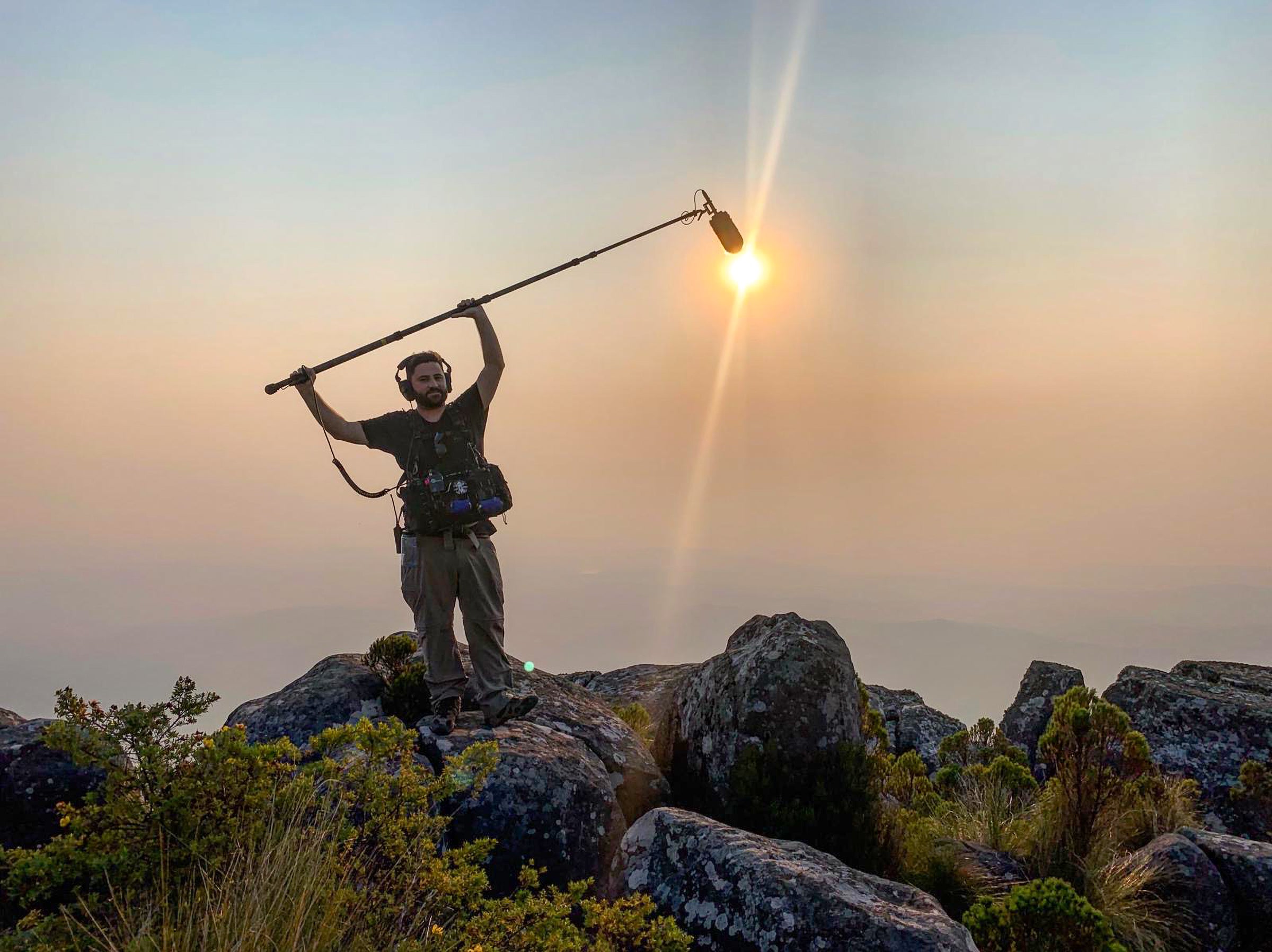Kevin Bellante: Rainforests, Snakes, Planes, Volcanoes and Production Sound
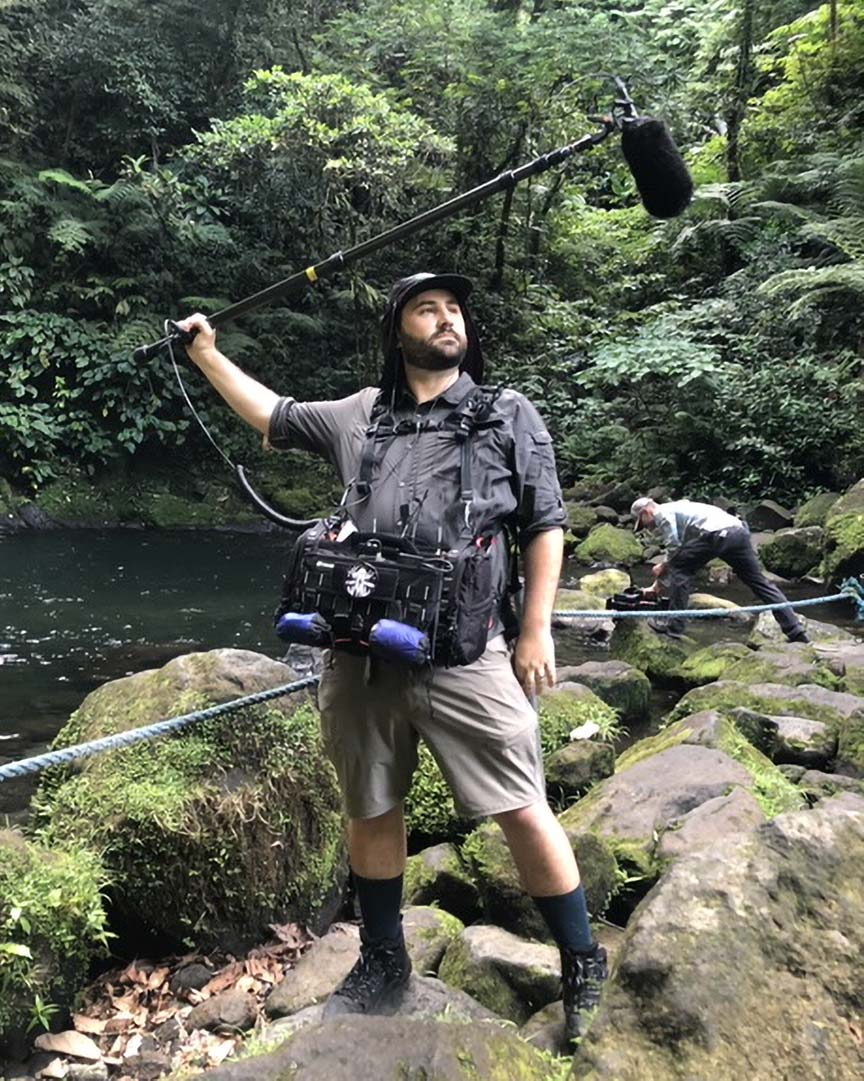
From Brazilian rainforests and mountain treks in India to volcanos in Nicaragua, production sound mixer Kevin Bellante never fails to raise an eyebrow with his photos from the field. He grew up in Chatsworth and now hails from Los Angeles, California in the San Fernando Valley. When he's not recording sound for productions near and far, which is seldom, he enjoys camping and scuba diving (most recently at the Great Barrier Reef).
That, plus he's always trying to squeeze in some Dungeons and Dragons with friends. With such a busy schedule, we're thankful that he managed to talk to us a little about his career and give us a behind the scenes perspective on some of his recent adventures.
Check out Kevin's website: soundca.com
How long have you been working in production sound and what first attracted you to it?
I got my first taste of mixing/stage work in 6th grade Tech theater. If you count that, it’s been 21 years, but professionally it’s been about 12 years. In elementary school we watched a video about film making and the role of a foley artist. At the time I thought, “Wow, that looks like so much fun” seeing these people record sounds and make them into something else was it for me and I knew that’s what I wanted to do. That’s what started my love of sound craft.
Which type of projects do you most enjoy doing – film, TV, documentary, or all of the above?
I enjoy working on documentaries the most. Getting to hear stories unfold in real-time has always been an exciting part of the job. My most recent project that’s out is “Off The Map” on The Travel Channel. Our hosts JJ Kelley and Kinga Phillips travel the world investigating missing people in some very remote and dangerous places. We filmed in 8 countries and each had their own set of challenges. Everything from intense rain in Brazil, dodging cattle on a brutal hike to Kheer Ganga in India, and an encounter with a highly venomous snake in Panama. You have to be ready for everything and somehow pack light.
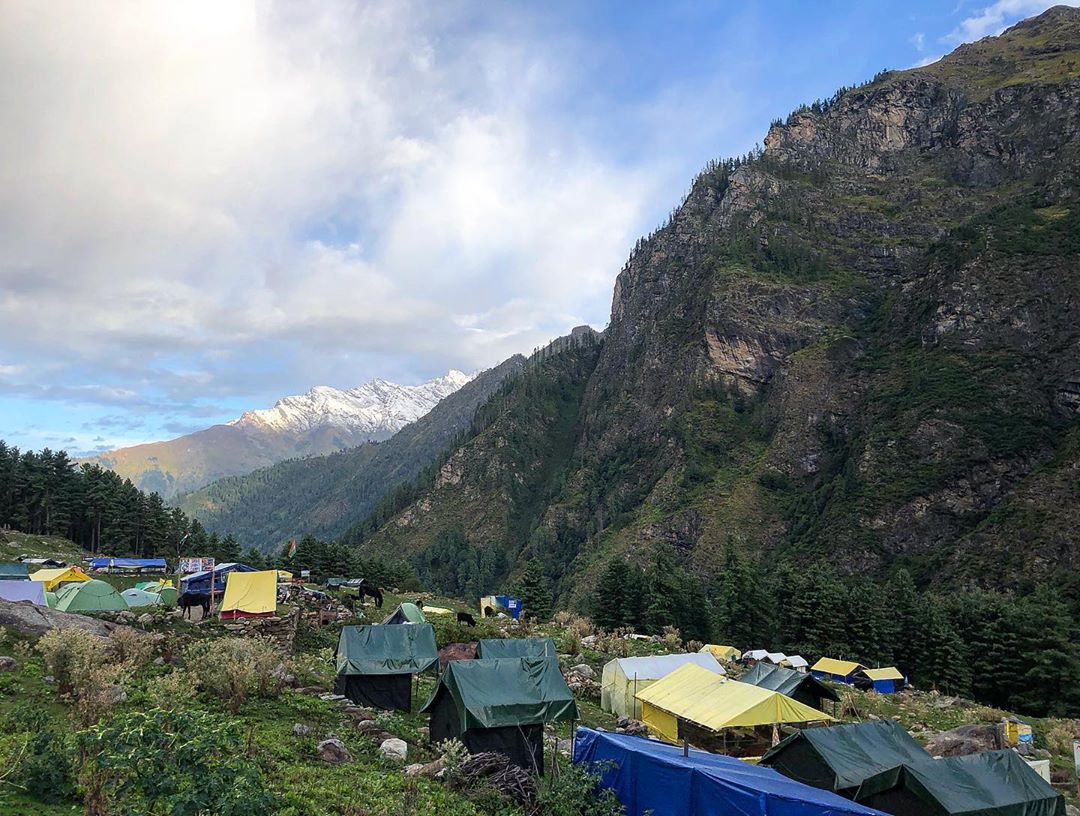
The Kheer Ganga trek in India
You've worked in some seriously extreme locations, such as the open-lava volcano in Nicaragua. What was the job and what were the conditions like up there for recording sound?
We where working on promos for an upcoming prime time special. Unfortunately, NDAs keep me from talking about that project directly right now. Out of all the places I have been, the Masaya Volcano in Nicaragua was one of the most extreme locations for sound I have ever been. Not only did we have the constant dangers of thick toxic gas that can rust a 1-inch steel cable in a week and wreak havoc on equipment, but there were high winds and humidity that made it a rather tough location. In the high wind situations I would cut a small Piece-A-Fur over the mic or use a WindBubble, both where absolutely essential to getting clean audio.
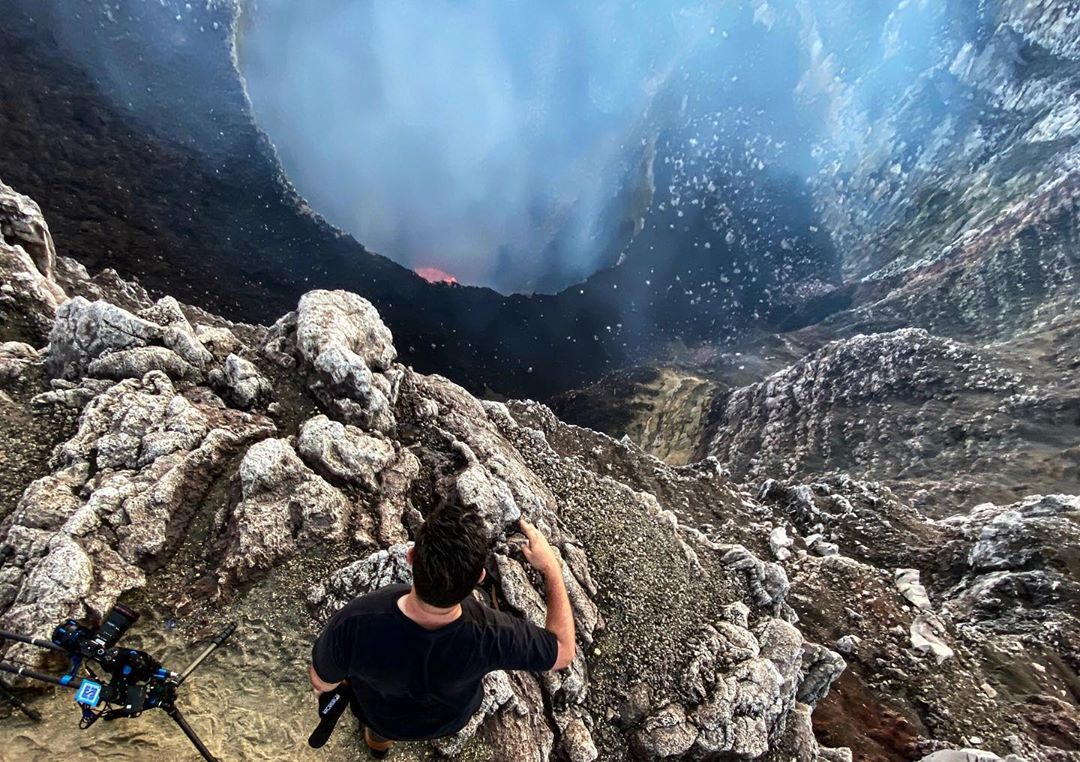
Masaya Volcano in Nicaragua
Are there any other challenging environments you've worked in that stick out in your memory? What forewarning do you usually get from production in these cases?
One that comes to mind is one of my first projects I did called “Departure Date”. Production decided to shoot the entire movie in a Boeing 777 while we were at cruising altitude! We had everything in order and approved by the FAA, but when we got in the air the captain decided we couldn’t use any wireless. So I did the only thing we could and hardwired the lavs right into the recorder. Luckily I had the ta5 XLR adapter to make it work. We don’t always know what’s going to happen and it’s important to be prepared for any conditions, weather or otherwise. If production tell us ahead or not it’s still our responsibility to get the audio clean.

In Zimbabwe - A park ranger with Kevin's boom
Having probably worked on a variety of different kinds of shoots, how much would you say is bag work and how much is cart-based, and which do you prefer?
I almost always seem to be on the road. Faster moving doc and reality is always a bag for me. When I’m shooting locally I tend to do more TV and commercials which are usually cart based. It’s cliché, but I notice that the grass is always greener on the other side. When I’m freezing on a mountain top, all I want is craft service and chair; but when I’m in a studio, all I want is to be somewhere more exciting.
It looks like you get to travel to a lot of different places. How have you refined your equipment for travel over the years? Is there a trend towards smaller rigs at the moment or has there always been?
"Not only did we have the constant dangers of thick toxic gas that can rust a 1-inch steel cable in a week and wreak havoc on equipment, but there were high winds and humidity that made it a rather tough location."
Weight is always the problem. You can use your “media badge” to get more weight and bags, but you are going to be the one who has to carry it to the top of the mountain. When I first started I would always overpack. You should always pack as little as possible. Then what if something fails - do you bring duplicates of everything? I can fit an entire kit into a pelican 1615 pelican air if I need to, but it leaves no room for error. I found my perfect middle ground is to carry on my bag and some essentials (e.g. chargers, wireless, boom pole) in a backpack and check all the extra stuff like rain protection extra cables adaptors. This way if all my bags get lost I can still operate.
I think ENG mixers have always wanted smaller bags, but advancements in technology have only recently allowed for it. The kits have come a long way, even in the last 10 years, from the weight and size of the trusty SD 788 and 7x Lectrosonics 411As. I hope the trend stays with gear getting smaller like the Sound Devices MixPre II, and power and innovations like the NOVA bringing so much technology to sub-10lbs bags. Anything that saves my back is good with me.
Bellante's mixing bag setup
Here’s a bit of fun: Your desert island recording bag… what’d be in it?
Well for the recorder, That’s easy: I’d use my Zaxcom NOVA. The power draw alone makes it the most ideal bag for being out in the field because when you don’t always have power source it’s nice to not have to lug extra batteries. Then you add the bonus of the (light) weight, 8 channels of wireless built in, MARF recording, ZaxNet and NeverClip - it’s a no brainer. Lav wise, I would go with Sanken cos-11 w/ Lav Concealers into a Zaxcom TRXLA3, audio root batteries Ambient Boompole, Sennheiser MKH 416, with a Bubblebee Industries Spacer Bubble with long haired spacer cover. And if I’m actually on a deserted island a bottle of Bullet Bourbon... I’ll make room.
Do you have any pieces of sound equipment and/or expendables which are a requisite despite the type of job? Is there anything non-sound related that you couldn't live without on set?
The expendables I use the most are the Lav Concealers. Lots of the time talent has wardrobe changes mid day and you find yourself mic'ing people up on a mountainside and being able to quickly mic up talent is very important. Especially if you have the common issue of subjects who request to mic themselves. The Lav Concealer with wire fabric guard make things go much smoother. The only non-sound thing I can’t live without onset is my super light small camping chair. It's nice to have a seat when you're on your feet all day and it's nice to have an elevated place to put your gear down on when you’re in the jungle, so bugs and snakes don’t get into it.
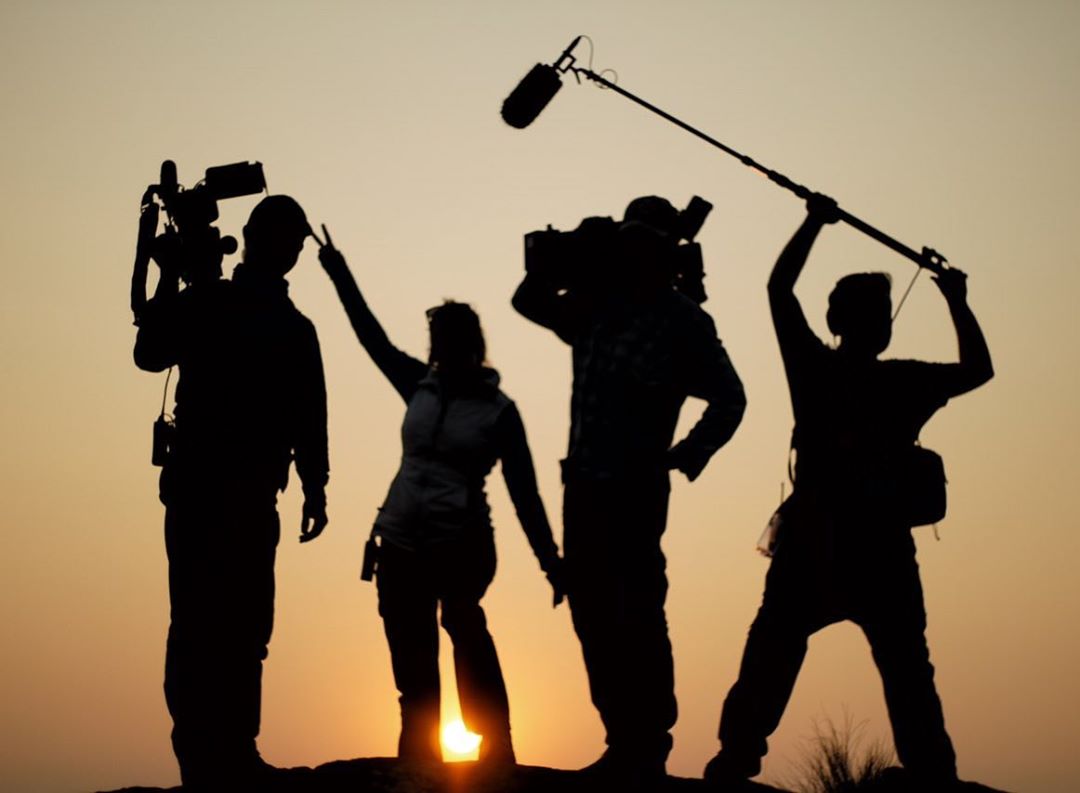
Any advice for up-and-coming sound recordists looking to get more work in the industry?
Persistence. If you know this job is for you just stick with it. It took 3 rough years of being a PA and a certification in Protools before I transitioned to doing sound. It took a lot to convince some people this was a real job at first.
Knowing post and the limitations of editing now days is also crucial to getting good audio in the field.
I can share with you the advice I got from the first mixer I ever met. He told me, “you get more jobs over beers than you ever will passing out resumes”, which boils down to the fact that this job is very much about relationships. Clean audio and doing your job right comes first, but being easy to work with is a huge plus when you are on the road. No one wants to be stuck working with someone lame for months on the road.
Coffee, Roll, cut, drink, rinse, repeat!
Thanks a million Kevin, stay safe out there and keep the adventures (and sound) rolling!

